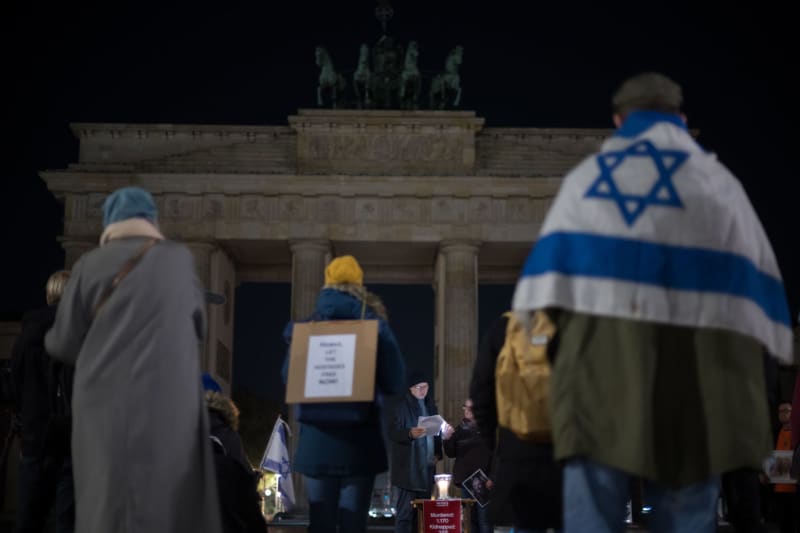On October 7, 2023, the Palestinian militant group Hamas carried out a series of unprecedented terrorist attacks against Israel, leading to a significant loss of life and a prolonged conflict that has reverberated globally. As the world marks the first anniversary of these tragic events, memorials and vigils are taking place across Germany. In Berlin, activists gathered at the Brandenburg Gate to remember the 1,170 victims killed and the 255 individuals abducted on that fateful day. The commemorative event commenced at 5:29 AM local time, the precise moment the attacks began, and served as part of a coordinated global effort to honor those affected. The organizers emphasized that the purpose of the gatherings was to express solidarity with the Jewish state, combat anti-Semitism and anti-Zionism, and share in the grief of the Jewish people.
In Berlin, the commemorative program includes speeches from prominent figures, including President Frank-Walter Steinmeier, who is slated to address the attendees at an interfaith service at the Kaiser Wilhelm Memorial Church. After this solemn gathering, participants will walk in a silent procession to the nearby Jewish Community Centre, which will host an additional memorial event. Similar commemorations are also planned in other cities, such as Hamburg, where Chancellor Olaf Scholz is set to speak at the Hohe Weide Synagogue and in Munich at the Ohel Jakob Synagogue, demonstrating a nationwide commitment to remembering the victims of the terrorist attack.
Amidst the memorials, the atmosphere in Germany remains tense due to ongoing pro-Palestinian rallies that have sparked clashes with law enforcement. Authorities deployed over 2,000 police officers in Berlin to maintain order during the vigils and prevent any potential violence. These tensions highlight the complexities surrounding the Israeli-Palestinian conflict as it unfolds within Germany, a country that wrestles with its historical responsibilities following the Holocaust. Some activists gathered to protest the actions of Israel in Gaza, following the conflict that erupted after Hamas’ attacks, which has resulted in significant Palestinian casualties and international outcry.
The attack on October 7 is regarded as one of the most grievous assaults against Jews since the Nazi regime, raising alarms about anti-Semitism and societal divisions within Germany. Around 100 hostages taken by Hamas are thought to remain in captivity in Gaza, with their fate uncertain, compounding the grief felt by families and communities affected by the violence. In response to the crisis in Gaza and its implications, Israel has launched a military offensive that has led to significant loss of life. The resulting humanitarian crisis has polarized opinions, with many calling for greater attention to the suffering of Palestinian civilians.
Germany’s position on Israel is particularly nuanced, intertwining historical guilt with contemporary political obligations. Many Germans feel a commitment to defending Israel’s security, reflecting on past injustices and the lessons learned from World War II. This sense of duty, however, comes in conflict with the views of Germany’s substantial Muslim community and pro-Palestinian activists, who argue that the government’s stance disproportionately favors Israel without sufficiently addressing the humanitarian crisis faced by Palestinians in Gaza.
The compassion for victims expressed during these memorials underscores a deeper struggle within German society to reconcile grief and responsibility. As events unfold in the region and tensions remain high, these commemorative gatherings serve not only as a solemn remembrance of lives lost but also as a call for a more balanced response to the complexities of the Israeli-Palestinian conflict. Balancing the mourning of victims with advocacy for peace and justice in both Israel and Palestine remains a critical challenge for Germany and the broader international community in the coming months and years.

